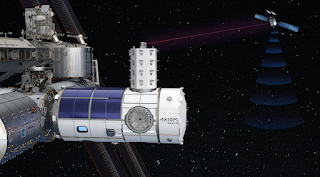In its statement, Globalstar referred to a “potential customer” as a key reason to procure the new satellites. “Globalstar is acquiring the satellites to provide continuous satellite services to the potential customer under the Terms Agreement described in the Company’s Annual Reports, as well as services to Globalstar’s current and future customers,” the company said.
That unnamed customer will reimburse 95% of the capital expenditures associated with the new satellites as well as interest costs for Globalstar’s financing of the system. Globalstar said it expects to have financing in place for the satellites by August and has deferred initial payments to MDA at 0% interest until Aug. 16.
In its 2020 annual report, Globalstar said it entered into an agreement, called the Terms Agreement, in February 2020 with an unnamed potential customer. Under that agreement, that customer would pay for nonrecurring engineering services “in connection with the assessment of a potential service utilizing certain of our assets and capacity,” and work on terms for development of operation of that service. The report doesn’t elaborate on the service in question or identify the customer.
Globalstar released its fourth quarter and full year earnings after the markets closed Feb. 24. The company reported revenue of $124.3 million for 2021, down 3% from 2020, and a net loss of $112.6 million, nearly 3% greater than 2020. Globalstar did not disclose new information about the identity of the potential customer mentioned in the Terms Agreement, but said that customer had provided $111.4 million in advance payments “to be recognized into revenue as we perform under the contract.”
Much of the industry speculation regarding Globalstar’s mystery customer has focused on Apple. There were reports last fall that the latest version of Apple’s iPhone would include a satellite connectivity option, with Globalstar providing that service. However, Apple made no mention of a satellite service when it announced the iPhone 13 line in September 2021.
Globalstar is also facing competition in providing satellite connectivity to smartphones. Lynk is working on a smallsat constellation to provide services, starting with messaging, to conventional smartphones, having recently tested that capability in the United States and several other countries. AST SpaceMobile is developing its own satellite constellation to provide services to mobile phones, raising $462 million in a SPAC merger last April to fund work on that system.
MDA said in a statement it will assemble and test the Globalstar satellites in a new facility in Montreal. “Combining our deep expertise with new partners like Rocket Lab to bring exciting capability to the rapidly growing LEO constellation market further strengthens our position in the global satellite systems market,” Mike Greenley, chief executive of MDA, said in a statement.
Rocket Lab, which will manufacture the buses, will leverage its growing vertical integration by using solar panels, structures, reaction wheels and software from companies it has acquired in the last two years.
“With this contract Rocket Lab is executing on its strategy to go beyond launch and lead the new space economy by delivering complete mission solutions spanning spacecraft manufacture, satellite subsystems, flight software, ground operations and launch,” Peter Beck, chief executive of Rocket Lab, said in a company statement.


